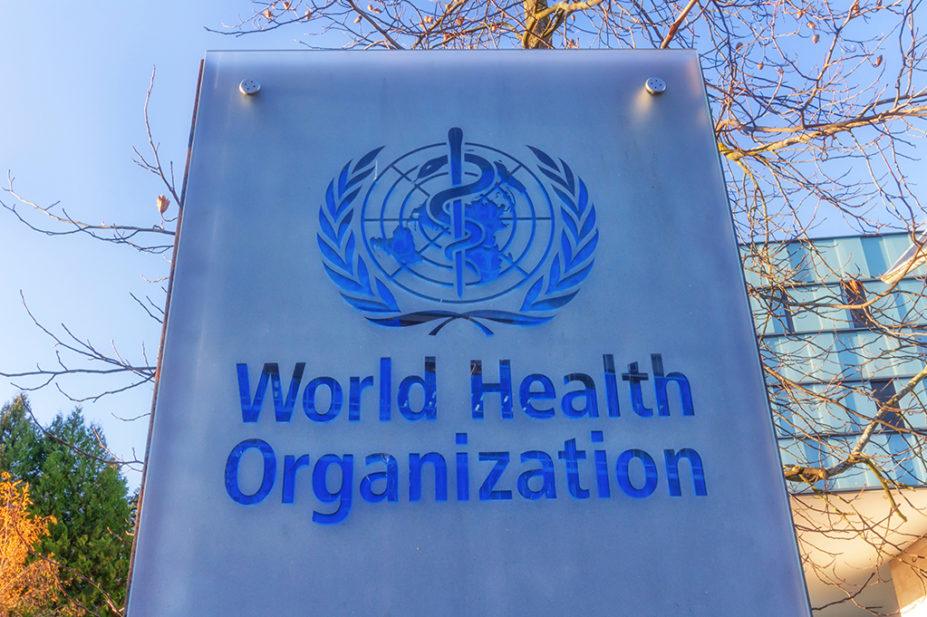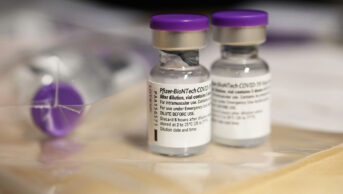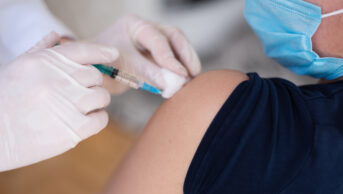
Shutterstock.com
The World Health Organization (WHO) has “strongly recommended” baricitinib, a Janus kinase (JAK) inhibitor, for patients with severe or critical COVID-19.
It has also issued a conditional recommendation for the use of sotrovimab, a monoclonal antibody, for the treatment of mild or moderate COVID-19 in high-risk patients.
The recommendations, issued on 14 January 2021, are based on evidence from seven trials involving more than 4,000 patients with a mixture of non-severe, severe and critical COVID-19. They form the eighth update of the WHO’s living guidelines on therapeutics and COVID-19.
Baricitinib, which works by suppressing the overstimulation of the immune system, is already used in the treatment of rheumatoid arthritis. The WHO’s recommendation to use it for severe or critical COVID-19 provides prescribers with an alternative option to the interleukin-6 receptor blockers tocilizumab and sarilumab, which were recommended by the WHO in July 2021.
Like tocilizumab and sarilumab, the WHO recommends that baricitinib is given alongside corticosteroids.
In the UK, baricitinib is currently being investigated in the ‘Randomised evaluation of COVID-19 therapy’ (RECOVERY) trial. It is thought that it may block the signalling activity of cytokine molecules, which contribute to the hyper-inflammatory state seen in severe COVID-19.
The WHO has also conditionally recommended the use of sotrovimab for treating mild or moderate COVID-19 in patients who are at high risk of hospitalisation, such as patients who are older and/or immunocompromised, or patients with underlying conditions such as diabetes, hypertension and obesity. Unvaccinated patients also fall into this group.
Sotrovimab was approved by the Medicines and Healthcare products Regulatory Agency (MHRA) in December 2021 for people with mild-to-moderate COVID-19 and at least one risk factor for developing severe illness, after clinical trial results showed that a single dose reduced the risk of hospitalisation and death by 79%.
It is currently being administered to a range of patients with confirmed COVID-19 who are at high risk of progression to severe disease or death from the virus.
The WHO recommends using sotrovimab as an alternative to the monoclonal antibody cocktail containing casirivimab and imdevimab, which was recommended by the organisation in September 2021.
According to a press release issued by the WHO on 14 January 2021, studies are ongoing on the effectiveness of monoclonal antibodies against the Omicron variant of COVID-19, but early laboratory studies show that sotrovimab retains its activity.
Baricitinib and sotrovimab have been invited for ‘WHO prequalification’, which assesses the quality, efficacy and safety of priority health products to increase access in lower income countries. However, the extent to which these medicines will save lives ultimately depends on how widely available and affordable they will be.
The panel of experts developing the guidelines also looked at ruxolitinib and tofacitinib for severe and critical COVID-19; however, the WHO made a conditional recommendation against their use owing to uncertain effects.
The WHO said it was is in discussions with manufacturers to secure global supply capacity and equitable and sustainable access to the newly recommended therapeutics.
Read more: Everything you need to know about the COVID-19 therapy trials


